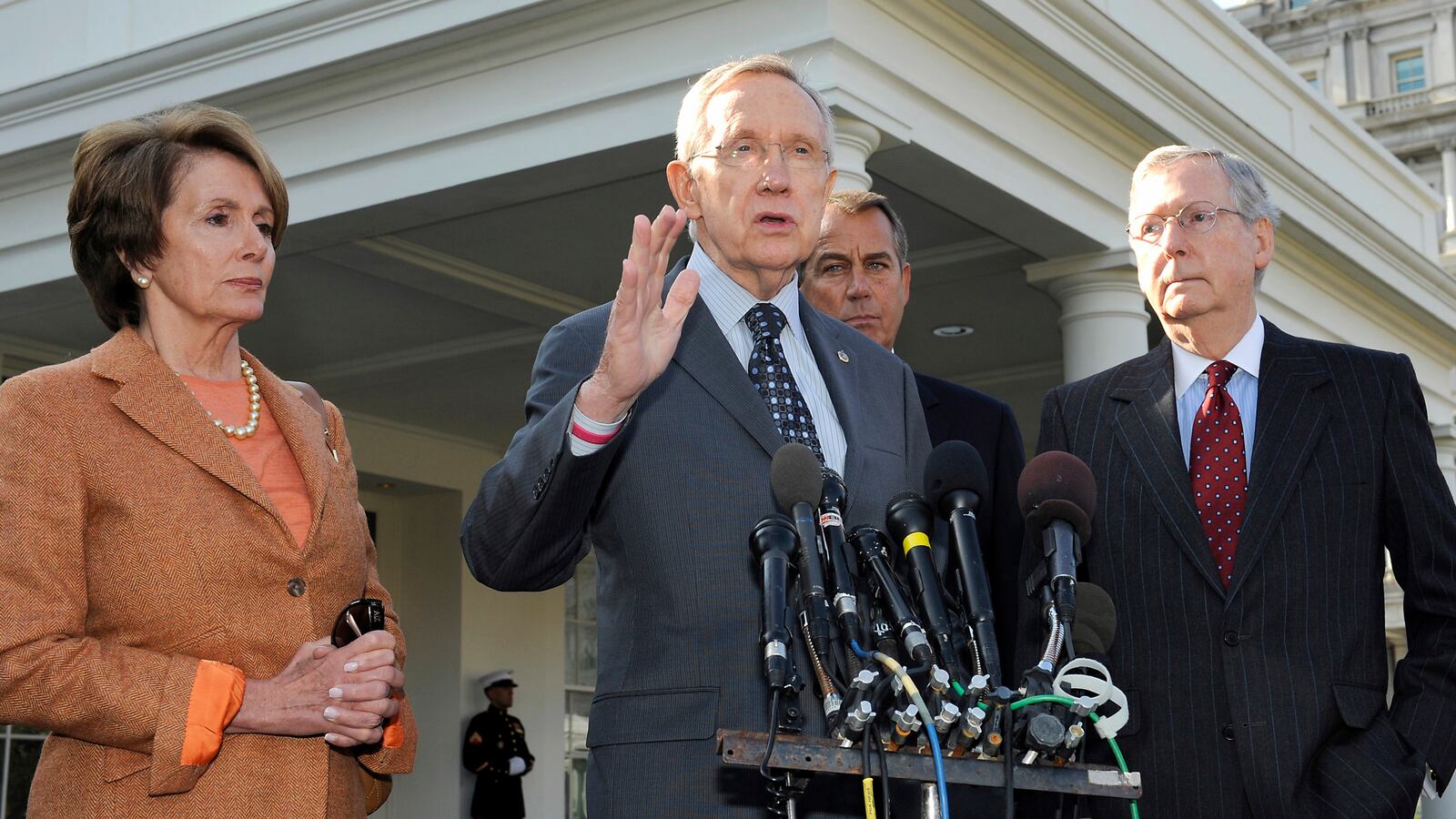
Here's the second crucial ridiculous thing Democrats believe:
The US can achieve fiscal consolidation without any increase in taxes on the 98% of the country that earns less than $250,000.
Barack Obama committed himself to the 250,000 cut-off back during the 2008 presidential campaign: before the financial crisis, before the ballooning of the deficit, before the fiscal cliff - in a wholly different fiscal world. Yet even as everything else has changed, this one commitment has remain fixed. It has three perverse effects.
Effect 1: Because the administration fears that the complex interplay of rate cuts and deduction removals might conceivably impose a tax increase on some families somewhere earning less than $250,000, the Democrats' cut-off has quietly increased to $400,000. Remember, the top 1% starts at $350,000. As the number of tax targets shrinks, revenues from tax increases dwindle.
Effect 2: By conceptualizing the tax problem in terms of income levels, Democrats have inescapably committed themselves to raising their desired revenues through the income tax system. Any other kind of tax - carbon taxes, VAT, progressive consumption tax - will have to come later, some time after the $250,000 promise has expired, and then as part of some future hypothetical tax reform.
Effect 3: The administration has decoupled its huge new Obamacare entitlement from any plausible revenue source. Universal health care cannot be funded by taxes on billionaires. Nobody else funds their healthcare system that way, and for the excellent reasons that a) it won't work and b) if it could somehow work, it would weaken any public support for healthcare cost control, which is weak enough to begin with.
Generally: the Democrats' thinking about taxes may be less militantly ideological than Republican thinking - but it's no less magical.





